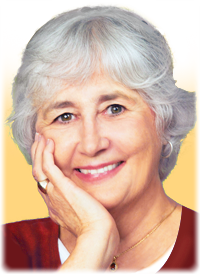The Future of Story Conference, Los Angeles, CA Aug 2011
I was invited to be on a panel for this conference. Someone took notes so thought I’d share the excerpts from some of my comments there. The focus though more on screenwriting is applicable to all forms of narrative. (Please note that CAJ are my initials.)
THE FUTURE OF STORY, Los Angeles, CA Aug 2011
Developing the Story, Panel 1: Moderator: Christopher Vogler.
. I think the idea of looking at future story is realizing
spirituality is a large component of what people are looking for. Strong characters -,flawed characters – that we can relate with.
CV: What is the process to you, and where is this going?
CAJ: I came from a different wing: the NY theater as an actor and playwright. When my first movie was chosen, when it was picked up by HBO, I was naive enough to think that the writer was listened to. I donʼt think thereʼs any one way to write more than there is one way to live your life. Honor your own vision. Remember that market research people at the studios told them to turn down Star Wars and E.T. One of the best things about advanced technologies is that independents can have a voice that they didnʼt have years ago. My concern has always been the squelching of the independent vision.
One thing that will not change: story. We go to movies in order to feel. We have a
smorgasbord of how we choose to feel. David Putnam once said, “If movies could be what they might be, thereʼd be no need to go to church.”
CAJ: Everything has sped up. In stories on screen and television, with editing and gratuitous violence… that concerns me. Where are the stories that convince you to go deep, to move a little slower and access the deeper places within?
the consciousness youʼre trying to reach.
Question and answer
Q: How can we bring a richer mythology to everything?
CAJ: One of the most powerful things you can do as a storyteller is to tell the story you feel the most passionate about. Not what you think will sell, but what you feel most strongly about. That emotion is contagious. Itʼll come across the page and across the screen.
Q: Developing the writer.
CAJ: The most important thing in writing may not be the story, but it will be how you tell the story. Just as master painters, the writer has to stand somewhere to put the vision out there. The other thing about the development as a writer, your other careers and past are grist for the mill. For the writer, nothing is lost. If you want to be a writer and you donʼt come from a dysfunctional background, Iʼm
sorry for you. There’s no better background for a writer.
CAJ: Craft is absolutely essential. As a writing consultant, Iʼve received books that are inspired, but the craft is not there. Iʼve received scripts that are well-crafted, but the heart is not there. Good scripts and books integrate both.
Itʼs very important to have that first sample script or manuscript be as good as it can be. You canʼt go back to an executive or agent and ask them to read something again. So donʼt submit it too soon. Years ago when acting in Death of a Salesman directed by its author, I asked Arthur Miller how many drafts he wrote of Death of a Salesman. He said 36! Writing is re-writing.
CAJ: Tell me your story in two sentences. The first sentence should be about the
Outer world of your story or premise. The second sentence should be about the inner story or arc. The story within the story. Iʼm also a big believer in writing an outline, getting your story structure right. Choose something you love. Writing is a relationship. You may spend a year or more with a story. So it needs to be something you feel strongly about.
 The Way of Story
The Way of Story